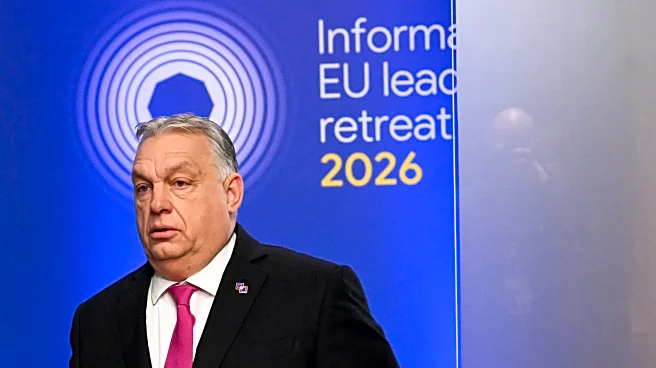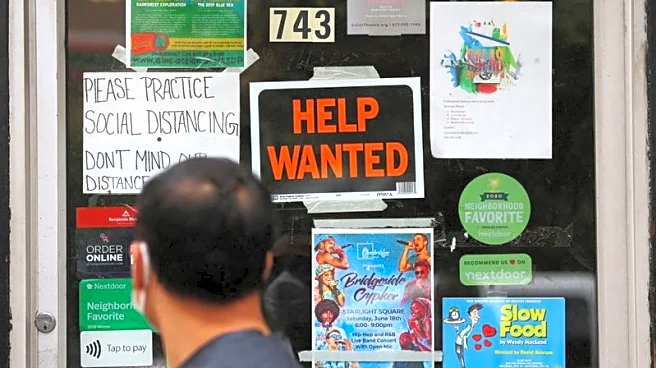What's Happening?
In a recent court filing, attorneys for former FBI Director James Comey revealed that the Department of Justice has identified Daniel Richman as 'Person 3,' the individual Comey allegedly authorized to leak
information. Richman, a Columbia University law professor and former federal prosecutor, was a special government employee at the FBI during Comey's tenure. The DOJ charged Comey with lying during a 2020 Senate hearing, accusing him of falsely stating that he never authorized anyone at the FBI to serve as an anonymous source in news reports about the bureau's investigation into Hillary Clinton. The filing argues that Comey is the victim of a vindictive prosecution driven by President Trump's personal animus toward him. Richman has not been charged with any crime, and the DOJ has not specified what information he is accused of leaking.
Why It's Important?
This development is significant as it highlights ongoing tensions between former FBI Director James Comey and President Trump, who has accused Comey of misconduct for years. The identification of Daniel Richman as the alleged source could impact the legal proceedings against Comey, potentially affecting public perception of the FBI's handling of politically sensitive investigations. The case underscores the complex relationship between the executive branch and federal law enforcement agencies, with implications for how such investigations are conducted and perceived. The outcome could influence future interactions between political leaders and law enforcement officials, affecting public trust in these institutions.
What's Next?
Comey's attorneys plan to seek dismissal of the false statement charge based on a defense of literal truth, referencing a Supreme Court case that protects individuals who make literally true statements under oath from perjury charges. The legal battle is expected to continue, with potential implications for Comey's reputation and the broader discourse on government transparency and accountability. The DOJ's actions and the court's decisions will be closely watched by political leaders, legal experts, and the public, as they could set precedents for handling similar cases in the future.
Beyond the Headlines
The case raises questions about the ethical responsibilities of government officials in handling sensitive information and the potential consequences of leaks. It also highlights the challenges in balancing transparency with national security concerns. The legal proceedings may prompt discussions on the role of personal relationships in government operations and the impact of political motivations on legal actions. These broader implications could influence future policy decisions and public expectations regarding government accountability.












